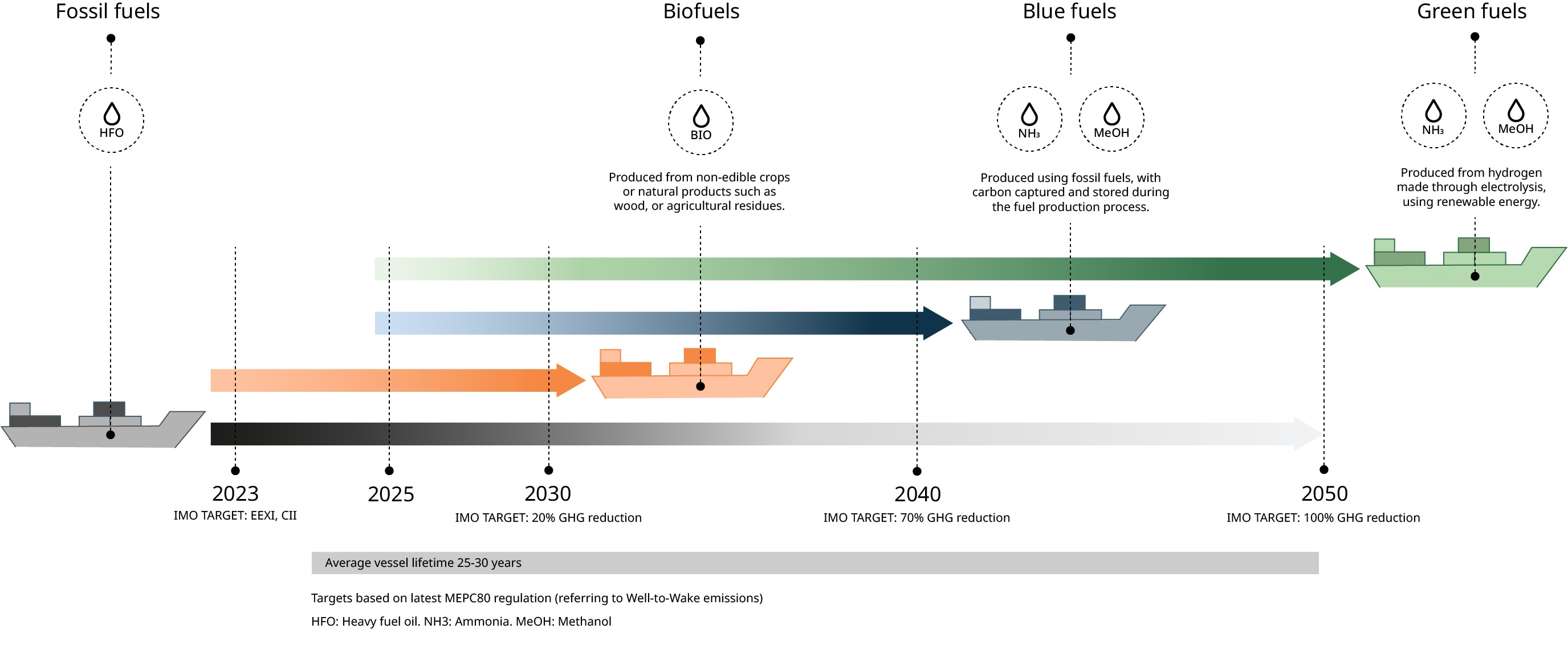
In a groundbreaking analysis released today by technology group Wärtsilä, it’s projected that sustainable shipping fuels could achieve cost parity with fossil fuels by 2035, given the implementation of decisive emissions policies such as carbon taxes and emissions limits. The report, titled ‘Sustainable fuels for shipping by 2050 – the 3 key elements of success,’ highlights the pivotal role of regulatory frameworks like the EU Emissions Trading Scheme (ETS) and FuelEU Maritime Initiative (FEUM) in driving this transition.
Shipping stands as the backbone of global trade, responsible for ferrying approximately 80% of the world’s goods. However, despite its efficiency, the sector contributes around 2% of global emissions, a figure expected to surge without intervention. The International Maritime Organization (IMO) has set a net-zero emissions target by 2050, with existing measures capable of slashing emissions by up to 27%. Yet, the path to full decarbonization requires a concerted effort.
Wärtsilä’s report underlines the significance of sustainable fuels in bridging the remaining emissions gap. However, it identifies a critical hurdle: the industry’s “chicken and egg” dilemma, wherein ship owners hesitate to adopt expensive, niche fuels without clear demand signals, while suppliers struggle to scale production without committed buyers.
Roger Holm, President of Wärtsilä Marine & Executive Vice President at Wärtsilä Corporation, emphasizes the urgency of coordinated action across stakeholders. He asserts, “Achieving net zero in shipping by 2050 will require all the tools in the toolbox, including sustainable fuels.” Holm underscores the impact of policy interventions, citing Europe’s initiatives as a testament to narrowing the cost gap between fossil and low-carbon fuels.
Wärtsilä’s modeling forecasts a timeline for the global availability and cost of sustainable fuels, emphasizing the need for swift policy implementation, industry collaboration, and individual operator actions. The report proposes key policy measures, including internationally agreed pathways for phasing out fossil fuels, industry-wide carbon pricing standards, and enhanced global collaboration on innovation and infrastructure.
Industry collaboration emerges as another imperative, with calls to pool buying power, engage with other sectors, and foster knowledge sharing. The report underscores the pivotal role of individual operators, citing tangible benefits in fuel efficiency improvements.
Innovations in fuel flexibility, exemplified by Wärtsilä’s development of ammonia-powered engines, offer promising avenues for emissions reduction. The report serves as a roadmap for scaling sustainable fuels, envisioning a future of affordable, widespread adoption and eventual decarbonization.

